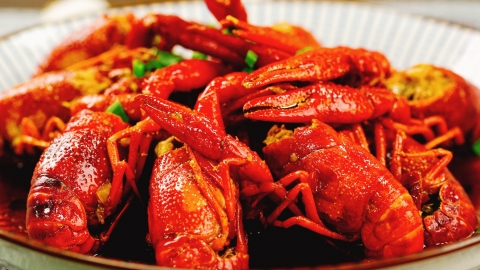What foods are incompatible with crayfish?
Generally speaking, crayfish are incompatible with foods rich in vitamin C, cold-natured foods, foods rich in tannic acid, high-protein foods, and alcoholic beverages. Detailed explanations are as follows:

1. Foods rich in vitamin C: Crayfish contain pentavalent arsenic. If consumed together with vitamin C-rich foods such as oranges, lemons, and strawberries, vitamin C may reduce pentavalent arsenic to toxic trivalent arsenic, potentially causing harm to the human body.
2. Cold-natured foods: Crayfish themselves are cold in nature. If consumed together with other cold-natured foods such as watermelon, pears, and cucumbers, it may intensify the cold properties, possibly causing symptoms such as diarrhea and abdominal pain, especially in individuals with spleen and stomach cold deficiency.
3. Foods rich in tannic acid: Consuming crayfish together with tannic acid-rich foods such as persimmons, grapes, and hawthorns may lead to the tannic acid combining with proteins in the crayfish to form precipitates that are difficult to digest, potentially causing gastrointestinal discomfort.
4. High-protein foods: Crayfish themselves are rich in protein. Consuming them together with other high-protein foods such as eggs, milk, and tofu may increase the burden on the digestive system, leading to indigestion.
5. Alcoholic beverages: Consuming alcohol while eating crayfish may irritate the gastrointestinal tract, increase the burden on the liver, cause stomach discomfort, and even trigger gastritis or gastric ulcers.
However, these foods are not absolutely incompatible with crayfish, and individual reactions may vary. It is recommended that individuals pay attention to their own responses in daily life. If discomfort occurs after consumption, intake should be reduced or the combination avoided.






